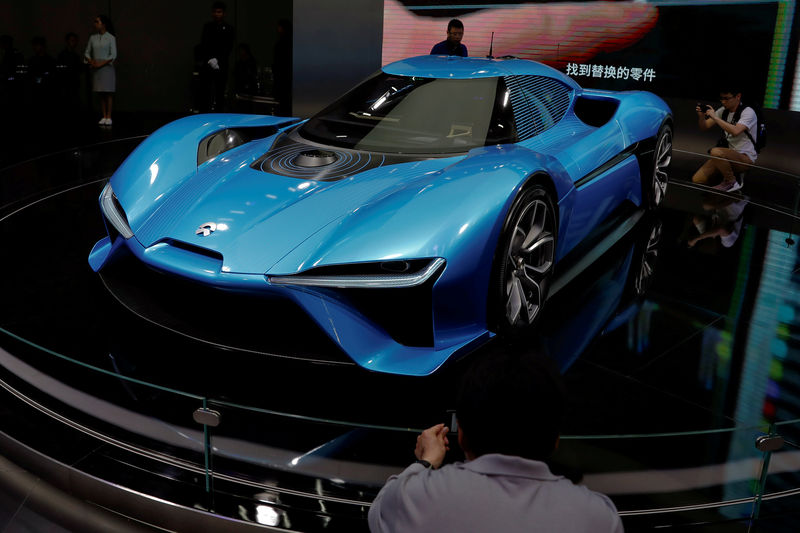By Jan Schwartz and Adam Jourdan
HAMBURG/SHANGHAI(Reuters) - Global automakers have urged China to delay and soften planned quotas for sales of electric and hybrid cars, saying its proposals will be impossible to meet and would severely disrupt their businesses, according to a letter seen by Reuters.
The June 18 letter addressed to the head of China's Ministry of Industry and Information Technology, is the most cohesive pushback yet from the industry against ambitious targets for so-called new energy vehicles in the world's biggest auto market.
Keen to combat air pollution, China is planning to set goals for electric and plug-in hybrid cars to make up at least a fifth of Chinese auto sales by 2025, with a staggered system of quotas beginning in 2018.
Beijing also sees the policy as a means to help the domestic car industry to compete with foreign rivals that have decades more experience in internal combustion engines.
The strict new rules plus planned harsh penalties for non-compliance, such as the cancellation of licenses to sell non- electric cars in China, has the potential to cause much pain for some automakers in the market.
"This will hit the industry pretty hard, especially well-known companies," said Liping Kang, senior manager at the Innovation Center for Energy and Transportation, a Beijing-based think tank.
Although Chinese Premier Li Keqiang and German Chancellor Angela Merkel agreed last month that concessions would be made, the ministry later released draft regulations upholding the strict sales quotas.
"The proposed rules' ambitious enforcement date is not possible to meet," the letter from U.S., European, Japanese and Korean auto industry bodies said.
"At a minimum, the mandate needs to be delayed a year and include additional flexibilities."
The ministry declined to comment.
The targets demand firms sell electric or plug-in hybrid vehicles to generate "credits" equivalent to 8 percent of total sales by 2018, 10 percent by 2019 and 12 percent by 2020.
EQUAL TREATMENT
The auto industry bodies also asked for China to reconsider some of the penalties for not achieving the quotas, such as plans to ban carmakers from importing and producing non-new energy vehicles altogether.
They also called for equal treatment of Chinese and foreign makers. Currently foreign carmakers are excluded from getting full subsidies for new energy vehicles and batteries, leaving manufacturers such as Tesla (O:TSLA) at a disadvantage.
"This preference for domestic automakers over import automakers undermines the environmental goals of the regulation, puts imports at a competitive disadvantage, and risks opening China up to international trade disputes," the letter said.
Chinese manufacturers are the biggest producers of electric vehicles worldwide, making 43 percent of the total last year, according to consultancy McKinsey & Co.
The letter was signed by the American Automotive Policy Council, the European Automobile Manufacturers Association, the Japan Automobile Manufacturers Association and the Korea Automobile Manufacturers Association.
European carmakers such as Daimler (DE:DAIGn) have responded to the Chinese proposals by announcing plans to ramp up local production of electric cars, while Tesla has said it is in talks with the Shanghai Municipal government to try to avoid a 25 percent tariff on imported vehicles.
Foreign manufacturers also want more credit given to plug-in hybrid cars, and for carmakers to be allowed to "bank" credits accrued from already sold cars as well as to "carry forward" credits into subsequent model years.

The letter was first reported by Germany's WirtschaftsWoche magazine.